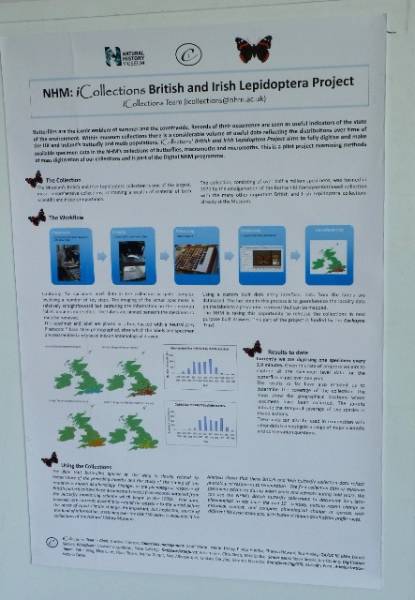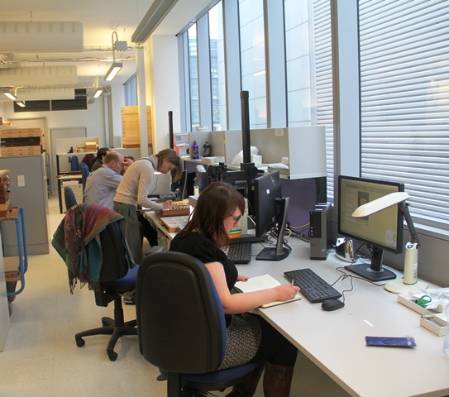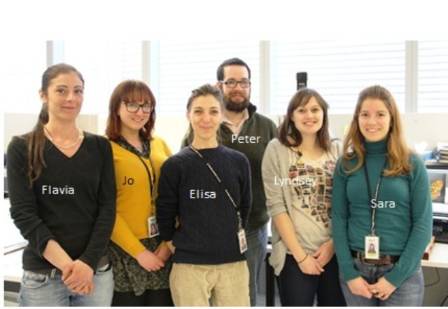I have always enjoyed taking part in Science Uncovered with its vibrant, interesting, exciting and revealing ambience.
As part of the European Researchers' Night, the Natural History Museum is one of the hundred institutions in 33 countries all over Europe to open its door for a night of discovery, learning and inspiration. The Museum's Science Uncovered for 2013 is here today, Friday the 27 September from 16.00 until Midnight, and it’s free!
Now, having said that, unfortunately I won’t take part in this year's event! I know this is very sad news for all my fans, or rather for all the fans of Lepidoptera, because they would have been the stars of the show, not me obviously!
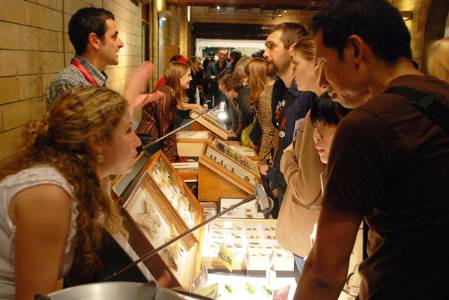 The Lepidoptera Station at last year's Science Uncovered.
The Lepidoptera Station at last year's Science Uncovered.
But don’t despair! There will be lots of bugs on show, from large and shiny beetles to attractive and colourful butterflies and moths. Some of my entomology colleagues will be manning Science Stations so you can get up close to their favourite specimens and find out what they're working on.
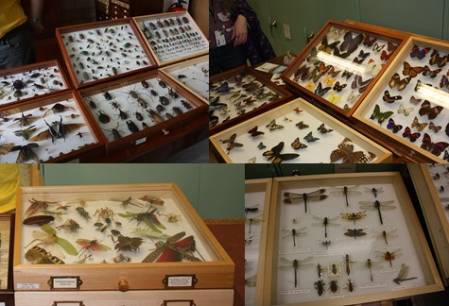 Some of the entomology display drawers you might be finding at this year's Science Uncovered.
Some of the entomology display drawers you might be finding at this year's Science Uncovered.
One of the stations not to be missed is the iCollections project – digitising the museum’s British and Irish Lepidoptera.
Let me tell you few things about this project and what you’ll find if you visit the station. The iCollections project is one of many digitisation activities currently undertaken by the Museum. The aim of the project is to make part of the vast entomology collections at our Museum more accessible to the public and to researchers.
The iCollections project – digitising the museum’s British and Irish Lepidoptera.
Each specimen of British and Irish butterflies and moths from the Museum collections is currently being photographed, and the data on the label of each specimen is also photographed and transcribed. This is great news for curatorial and scientific purposes. In fact, once the specimens have been photographed they are re-housed into new drawers that will provide better conditions for many years to come.
The data from the specimens will also be extremely useful to examine the pattern of distribution of the species of British and Irish Lepidoptera, and how factors such as climate change and human impact through urbanization and intensive agriculture are affecting it. The data would also be valuable to assess the scale of the historical collections of the Museum.
Some of the digitisers at work.
 Once the specimens are digitised they are re-housed into new drawers.
Once the specimens are digitised they are re-housed into new drawers.
The project started at the beginning of this year and so far the digitising team has managed to photograph more than 80,000 specimens and transcribe each of their labels.
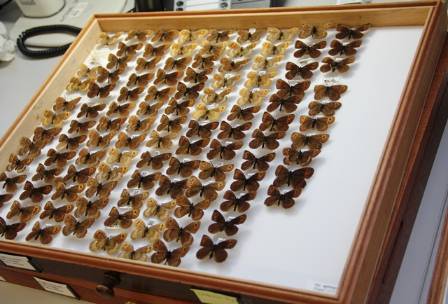 A drawer with specimens of Scotch Argus (Erebia aethiops), one of the 60 or so British species of butterflies currently being digitised.
A drawer with specimens of Scotch Argus (Erebia aethiops), one of the 60 or so British species of butterflies currently being digitised.
Apparently it is a reliable and very productive team, digitising one specimen every 2.9 minutes!
So, tonight, at Science Uncovered, do pay the the iCollections project Station a visit. Meet Elisa, Gerardo, Jo, Lindsey and Sara, the digitisers. They’ll be happy to tell you more about this project, answer your questions, and since the process of capturing the data from the labels is rather interesting and complex, they will have some of these labels for visitors to have a go at transcribing and deciphering them! And there’ll be prizes to be won, if you are smart enough that is!
Meet the iCollections Project digitisers!
They will also have some drawers of their favourite species which have already been digitised. The digitising team will be located in the noisy Nature Games room (Marine Invertebrates Gallery), so listen out for our animal-themed buzzers!
Enjoy!
Science Uncovered takes place today, Friday 27 September at the Natural History Museum, London. Join us from 4pm to midnight.



